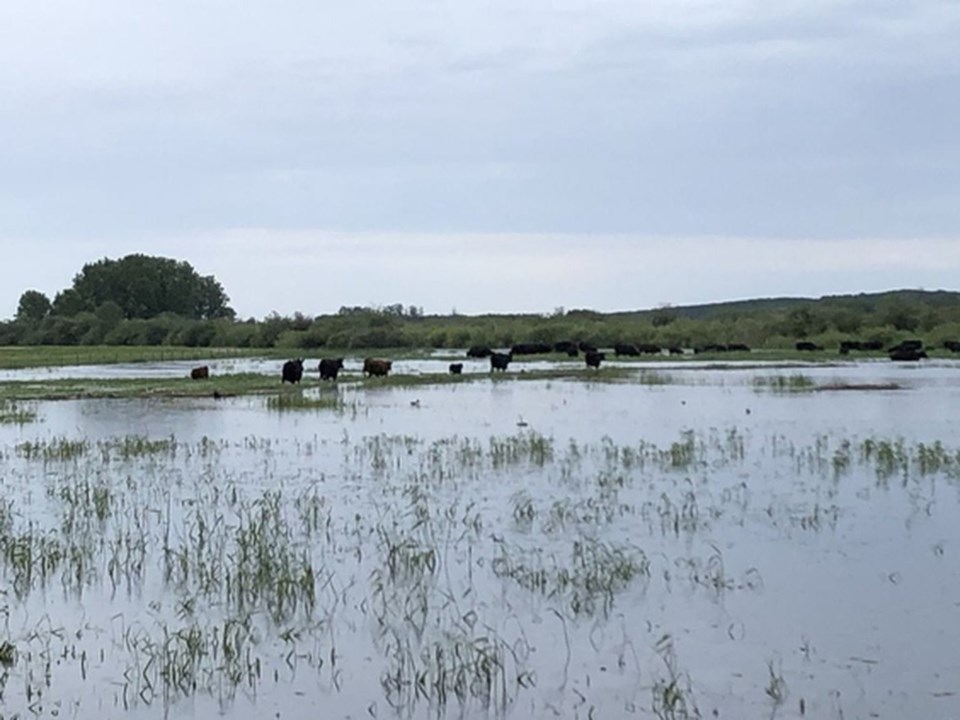Only a helicopter could save Allan Shkopich’s cattle stranded on an island north of Meadow Lake amid flooding a little more than a week ago.
“We didn’t know what we were going to do,” he said, noting flying in feed seemed like the only option. He was relieved when the animals forded back to high ground before grazing ran out, leaving Shkopich with the difficult task of recovering from the area’s largest flood since 1974.
Brent Brooks of Northern Livestock Sales recently estimated there could be up to 8,000 yearlings, and 15,000 cows and calves who’ve faced the brunt of the flooding in northern areas around Meadow Lake, Beaver River, Loon Lake and Parkdale.
Like other older ranchers facing a potential three-year recovery, Shkopich, 61, said he has given thought to retirement. But he’s adamant he’ll persist after years of outlasting plow winds, forest fires, and floods.
“I’d hate to let her go,” he said. “I’ve been a rancher all my life.”
He’s also one of the ranchers calling for the province to waives lease fees on its land in the area. He, among others, also wants the local rural municipalities to defer property taxes.Meadow Lake Reeve Timothy McKay said there were no plans to defer rates as of Tuesday. He encouraged ranchers to contact the province about receiving breaks on their lease fees. As of June 19, the municipality has declared a disaster area.Rancher Richard Alger, meanwhile, said other relief measures tended to be fairly limited.He was concerned there would be no hay for him to harvest this fall, cutting into that season’s feed supply and leading to costly replacements. On top of that, an animal backlog from COVID-19 meat plant reductions may also depress prices for producers choosing to sell off some of their herds.
Another older rancher, Richard Sergent, said he has been mulling retirement more than he once did. For him, flooding carries financial costs, but also smaller losses like days spent searching for missing cattle to no avail.
“When you look out there, and things don’t look good for the future, it’s tough,” he said. He said he hopes for help from the province, but time will tell. Mainly, he said warm, dry weather could help salvage his season. In both cases, it’s a waiting game.
Rancher Wanda Fedyk was one of many who dealt with flooding earlier this year. She said there was little more to do about it than look out and see the water coming.
For now, Fedyk said she’s waiting for a crop insurance assessor to come out with a drone and survey how much land her ranch lost. Calls from support agencies can take time, which can leave ranchers like her wondering what’s next. Like others, she wants locals municipalities to assist ranchers more, and is determined to stay resilient.
“Tomorrow’s a new day,” she said.




